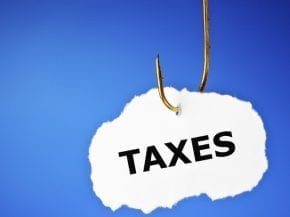- browse by category
- Audit Assistance
- Business and Taxes
- Celebrities in Tax Debt
- Cryptocurrency Taxes
- Economic News
- Foreign Banking
- Innocent Spouse
- IRS debt settlement
- IRS Headlines
- IRS Wage Garnishment
- Marriage & Divorce
- Payroll Tax
- Retirement
- Revenue Officers
- State Tax Headlines
- Stop IRS Debt
- Success Stories
- Tax and Politics
- Tax Attorney
- Tax Codes
- Tax Debt Help
- Tax Evasion
- Tax Levy
- Tax Lien
- Tax Payment Plans
- Tax Return Filing
- Tax Tips

Many business owners fear being audited by the IRS, but those that reside close to IRS offices have more rational. In an IRS study conducted by professors from universities in Kansas, Texas, and South Carolina, public companies located near the IRS are more likely to face an audit and are more likely to engage in tax avoidance.
The IRS Study, Explained
How can this be? In short, it has to do with networks. Indirect networks influence behavior, and taxpayer activities are no exception. Further, proximity can provide informational advantages to both business taxpayers and the IRS. The study also found that audits of local taxpayers living near IRS offices weren’t very efficient. All of the studies findings may influence how the IRS moves forwards with audits and how they are conducted.
It’s easy to think that the farther away from the IRS you are, the more likely you are to be careless about your taxes. However, the network effect is a strong one. Companies may not have been audited, but they know companies that have, and/or they know someone who knows IRS auditors. Interestingly, the effect can occur even when you aren’t cognizant of the degrees of separation between yourself and the party of interest. Closer proximity simply equates to more information.
What Can You Do with the IRS Study?
So what to do with this newfound information? Regardless, you should keep meticulous records no matter where you live. Further, if you are close to an IRS office, your audit might be more lenient, but don’t let yourself get comfortable with that idea. Here are some quick tips on how to avoid an audit as a business owner:
- Do the math: Triple check the numbers and enlist a program that calculates or at least a second pair of eyes.
- Maintain records: This is a no brainer. File all records away by month and year, as well as categorically – we recommend electronically.
- Don’t overdo it with shareholder salaries: An obvious way to try and lower corporate taxes, and the IRS are certainly privy.
- Don’t add in the home office deduction if you’re not eligible: Many people take this deduction that do not qualify. Read up on the requirements before subtracting.
- Make quarterly estimated payments: If you expect to pay at least $500 in business tax at the end of the year, you should be making estimated quarterly payments.
- Don’t report a loss every year
Takeaways
There’s no reason to fear an audit if you keep great records and abide by deadlines. And one last tip: don’t rely on the network effect.
Leave Comments

Top Tax
secrets revealed
Sign up for our newsletter and be the first to find out when exciting IRS news happens. Yes, exciting. We're really into taxes.


